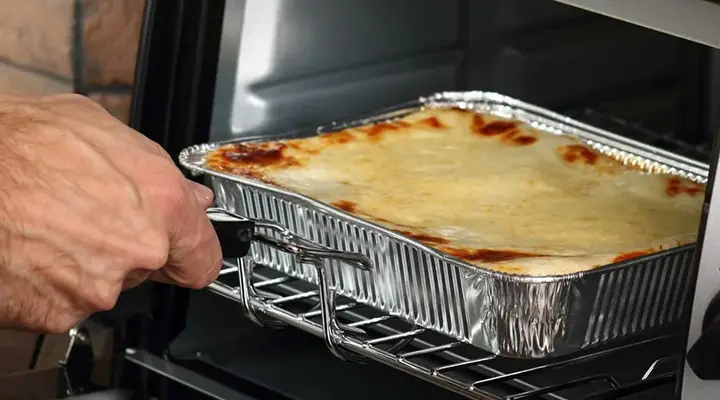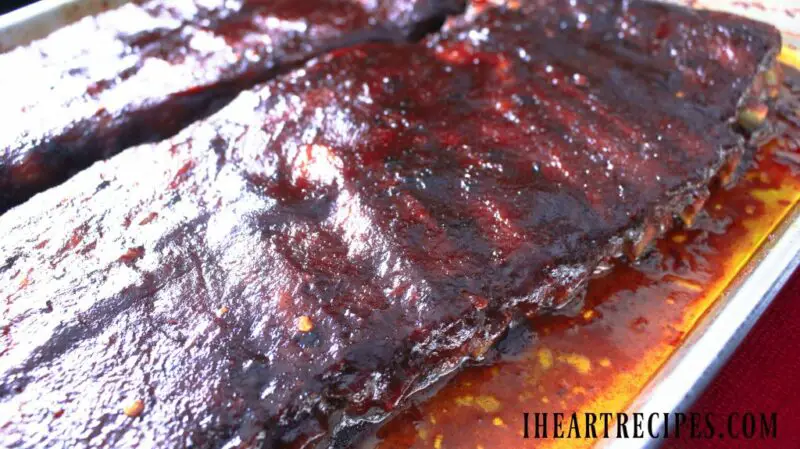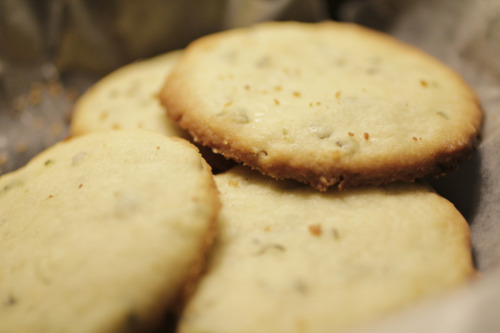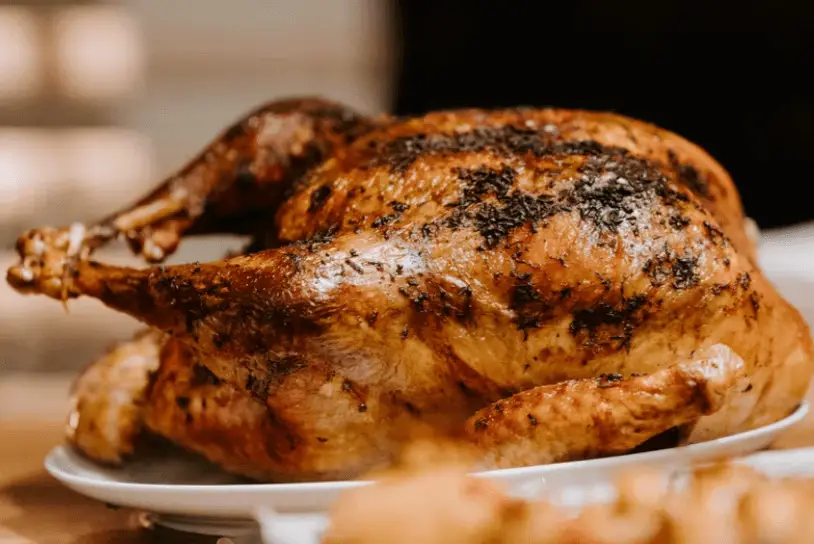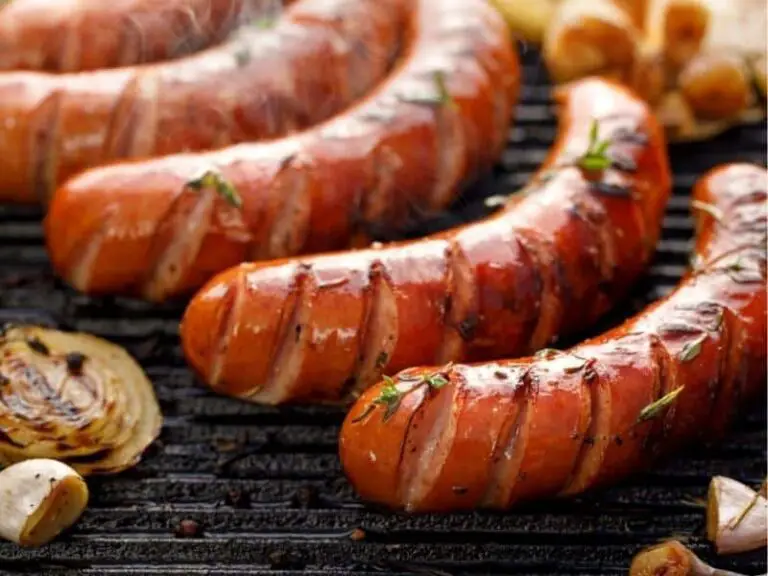Casseroles have been a staple dish in American households for decades. They’re an easy meal to make, can be prepped in advance, and are often big enough to feed the whole family. When it comes to cooking a casserole, the type of baking pan you use can affect the outcome of your meal. Aluminum pans are popular but some may ask, “Can You Cook a Casserole in an Aluminum Pan?”
Is It Safe to Cook in Aluminum Pans?
Before we delve into cooking casseroles specifically, let’s talk about the safety aspect of using aluminum pans for cooking. There are benefits to using aluminum pans such as their lightweight design and how they conduct heat well. However, there are concerns that leaching can occur, causing harm to human health.
The science behind aluminum leaching is still controversial and it is unknown definitely if it has negative effects on our bodies yet. For this reason, some people avoid using aluminum cookware entirely.
While studies have shown that acidic substances (such as tomatoes or vinegar) when heated in an aluminum pan can cause slight leaching of metal particles into food – this only applies when acidic ingredients come into contact with reactive metal surfaces – not if we cook them over them inside the pan. Additionally, most commercial-grade aluminum products go through a layering process that prevents these types of interactions with food.
In general though, when properly used according to instructions provided by manufacturers and safety tips from experts, aluminum pans pose no risk to your health.
When buying an aluminum baking dish or casserole pan always check for certification symbols like NSF International (National Sanitation Foundation), UL (Underwriters Laboratories), etc., These symbols guarantee that devices meet specific international health and safety standards required by regulators.
What to Look for When Choosing an Aluminum Casserole Pan
Aluminum casseroles come in different varieties and while they may look similar at a glance, they may differ in performance.
When choosing an aluminum casserole pan or dish, consider heat conduction abilities, the type of coating on the surface, and its oven-safe temperature limits.
Bare aluminum dishes tend to be non-stick because of their natural grease-repelling properties when hot. Similarly, anodized aluminum pans are popular for their even distribution of heat as well as providing a durable scratch-resistant finish that enhances the surface durability while preventing discoloration from food stains.
Another consideration to bear in mind is whether you want to select a dish with a lid or handle. Casserole pans come in various capacities too – if you’re cooking smaller servings, choose something smaller as the larger size may leave your food undercooked or with dry edges.
How to Prevent Food from Sticking to Aluminum Casserole Pans
One common problem that people experience when cooking with aluminum casseroles is that food can often stick or burn onto the surface. Fortunately, there are some easy techniques that prevent this from happening:
- Use non-stick spray: Spray your baking pan lightly before adding the ingredients inside.
- Parchment paper: Place parchment paper inside the baking dish before pouring your ingredients.
- Coating ingredients before adding them: Toss vegetables or meat in oil and seasonings prior to layering them; this hydration keeps surfaces and avoids sticking.
How to Properly Clean an Aluminum Casserole Dish
Cleaning up after cooking is always important for maintaining healthy and safe cooking habits. Some essential tips for cleaning your aluminum casserole effectively include avoiding harsh chemicals that may damage the surface of your pan.
A simple method would be using warm water mixed with a small amount of mild soap detergent (some vendors specialize in selling these products) together with a soft sponge. Avoid using abrasive scrubbers such as steel pads which can scratch off and weaken your pans’ coating leading to exposure of the reactive metal surface layer underneath.
There are natural cleaning solutions like vinegar, lemon slices or baking soda that can be mixed with warm water in case your dish has stubborn stains on it. Dry the pan immediately after washing and avoid leaving soaking for too long.
Best Recipes Suitable for Cooking in an Aluminum Casserole Pan
Some popular casserole recipes that work well in an aluminum pan include lasagna, casseroles like macaroni and cheese, Shepherd’s pie with mashed potatoes and vegetables, as well as Mexican-inspired dishes like enchiladas or nachos.
One recipe to try is this cheesy chicken and broccoli casserole:
Ingredients:
- 2 cups cooked chicken breast (cubed)
- 1 head of broccoli (cut into florets)
- 1 can condensed cream of mushroom soup
- 1 cup heavy cream
- 2 cups shredded cheddar cheese
- Salt and pepper to taste
- Optional topping: buttered breadcrumbs
Directions:
- Preheat oven to 350 F.
- In a mixing bowl, combine cooked chicken cubes, broccoli florets.
- In another bowl mix together the mushroom soup with the cream. Add salt and pepper if desired.
- Pour mixture over the broccoli/chicken in the first bowl, mix everything together.
- Pour half of the above mixture into a greased aluminum or steel casserole dish.
- Sprinkle half of the shredded cheddar evenly over your ingredients inside your dish before adding remaining ingredients and topping up with more cheese on top if necessary.
- Cover with lid or foil paper tightly then put into preheated oven for 45 minutes.
- Once done baking, remove from oven let it cool for a few minutes before serving.
Conclusion
It’s safe to cook casseroles using aluminum pans when you take necessary precautions such as getting certified products and avoiding exposing the cooking materials to reactive metal surfaces. Regular cleaning and taking good care of your dish will ensure that it stays in good condition for longer.
However, if you still have doubts about using aluminum pans or have a problem with metallic exposure, you can consider cooking casseroles using alternate materials such as ceramic or glass instead. Whatever type of baking pan you choose, it’s always important to follow instructions from the manufacturer and safety guidelines from health experts.
Q&A
Q: Is it safe to cook a casserole in an aluminum pan?
A: Yes, it is safe to cook a casserole in an aluminum pan as long as it is lined with non-reactive material such as enamel or stainless steel.
Q: Can I put an aluminum foil on my casserole before baking it in an aluminum pan?
A: Yes, you can use aluminum foil to cover your casserole before baking it in an aluminum pan. However, make sure that the foil does not come into direct contact with acidic ingredients.
Q: Will cooking a casserole in an aluminum pan affect the taste of the dish?
A: No, cooking a casserole in an aluminum pan will not affect the taste of the dish if lined with non-reactive coating or if covered with parchment paper or non-stick sprays.
Q: How do I clean my aluminum pan after cooking a casserole?
A: To clean your aluminum pan after cooking a casseroles, avoid using harsh scrubbers or abrasive cleaning tools that can scratch its surface. Instead, gently wash it with mild soap and warm water; rinse off and dry immediately after every use.
